HIGHLIGHTS
GET TO KNOW US
GET INVOLVED
MEDIA
REGIONS
California, Georgia, Chicago, North Carolina, New Orleans, Puerto Rico, Kentucky, Navajo Nation, Washington, D.C., Hawaii
INTERNATIONAL
"The work we are doing is for the progress of my community."
Damisca, whose efforts help prevent soil erosion
Haiti is in the midst of a food crisis, and 5.5 million people, about half of the nation’s population, are at risk of starvation. CORE has been in Haiti since the devastating 2010 earthquake, empowering thousands of Haitians in need. One of CORE’s ongoing programs, in partnership with the Caribbean Biodiversity Fund, is working on ecosystem-based adaptation (EBA) to address the food crisis and support economic stability through agriculture.
From periods of prolonged extreme drought, to an increase in the frequency of devastating hurricanes that flood and trample crops, Haiti’s agriculture sector cannot catch a break. The ecosystems that support much of this industry have been devastated by these constant environmental swings and decades of unsustainable farming practices.
With the EBA program, CORE is implementing green infrastructure projects that will not only rehabilitate local ecosystems but also strengthen them to ensure longevity, leading to generations of positive change.
CORE is taking a “ridge-to-reef” approach. We are looking at these ecosystems holistically, from the ridge or higher elevations where farmers plant their crops, to the reef or the coast where most local fishers make a living. How farmers grow their crops and tend to their land directly impacts the entire ecosystem.
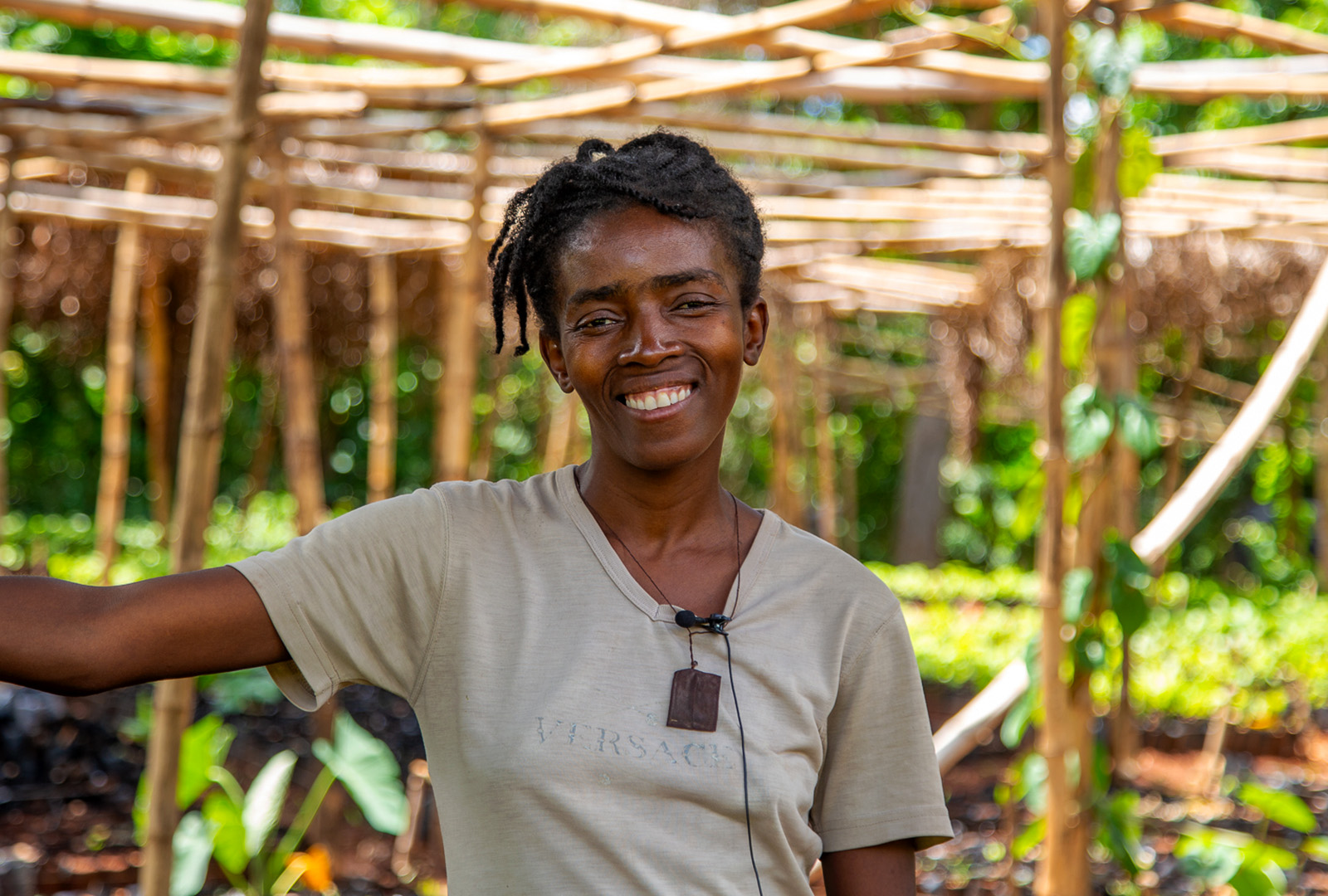
Damisca, as a part of this program, worked to prep seeds that went out into the community.
Without sustainable farming practices, fields are susceptible to severe flooding, resulting in soil loss and erosion. When that soil flows downhill, it ends up at the coast, disturbing mangroves and harming habitats that fishers and communities rely on.
To alleviate these problems, CORE has integrated upstream awareness training and activities with local farmers to educate them on the environmental impact of their farming and the positive outcomes of new sustainable methods. To reduce the frequency and intensity of flooding that can cause erosion, CORE is focusing reforestation efforts by helping farmers plant trees and shrubs and implement sustainable soil conservation practices.
CORE has hired local community members to assist with implementation as part of this work. Damisca, a mother of three, helped prepare hundreds of seedlings to plant in these fields to help prevent erosion and promote conservation. Damisca is proud of her work and its impact.
“The work we are doing is for the progress of my community. The agronomists aren’t going to leave with the seedlings; they are for us in the community,” she said.
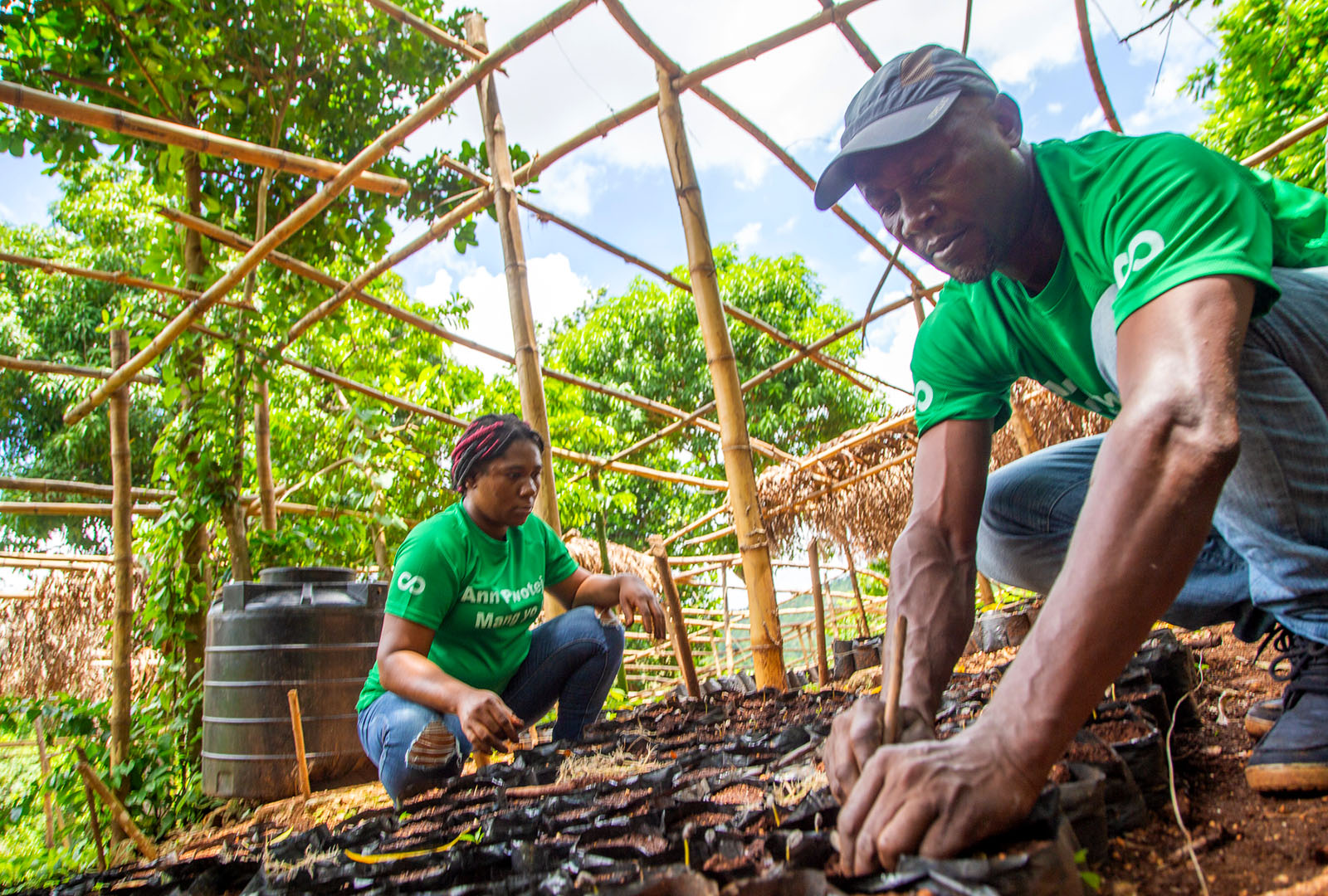
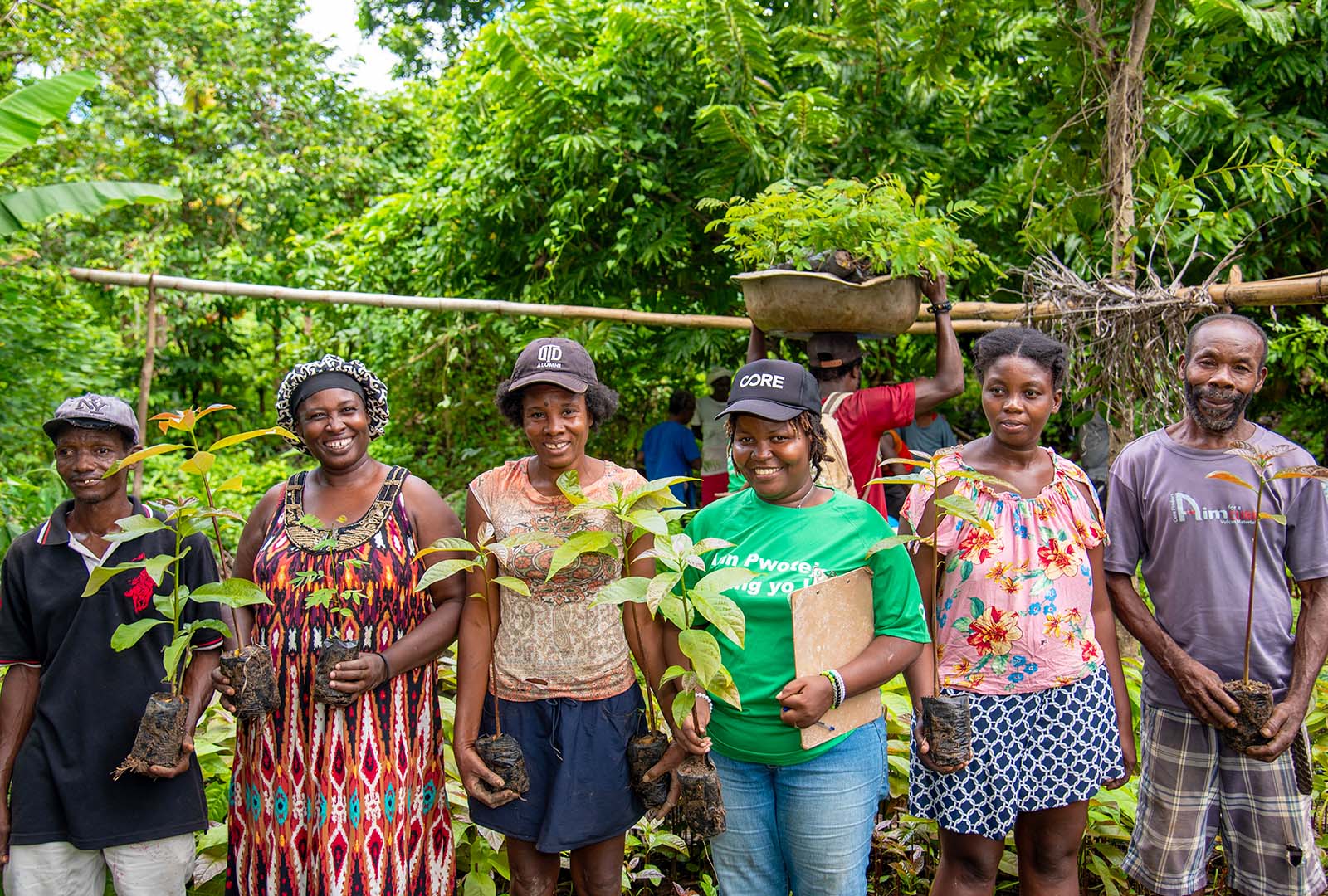
Even after her contract has ended, Damisca remains invested in the project and continues to visit the sites to offer a hand. She understands the long-lasting positive impact on her neighborhood. She said, “When this initiative is done and the mangroves are well protected, it will be good for me and everyone. This way, the fish in the mangroves will be better protected, and I will then be able to easily find fish to buy from fishers.”
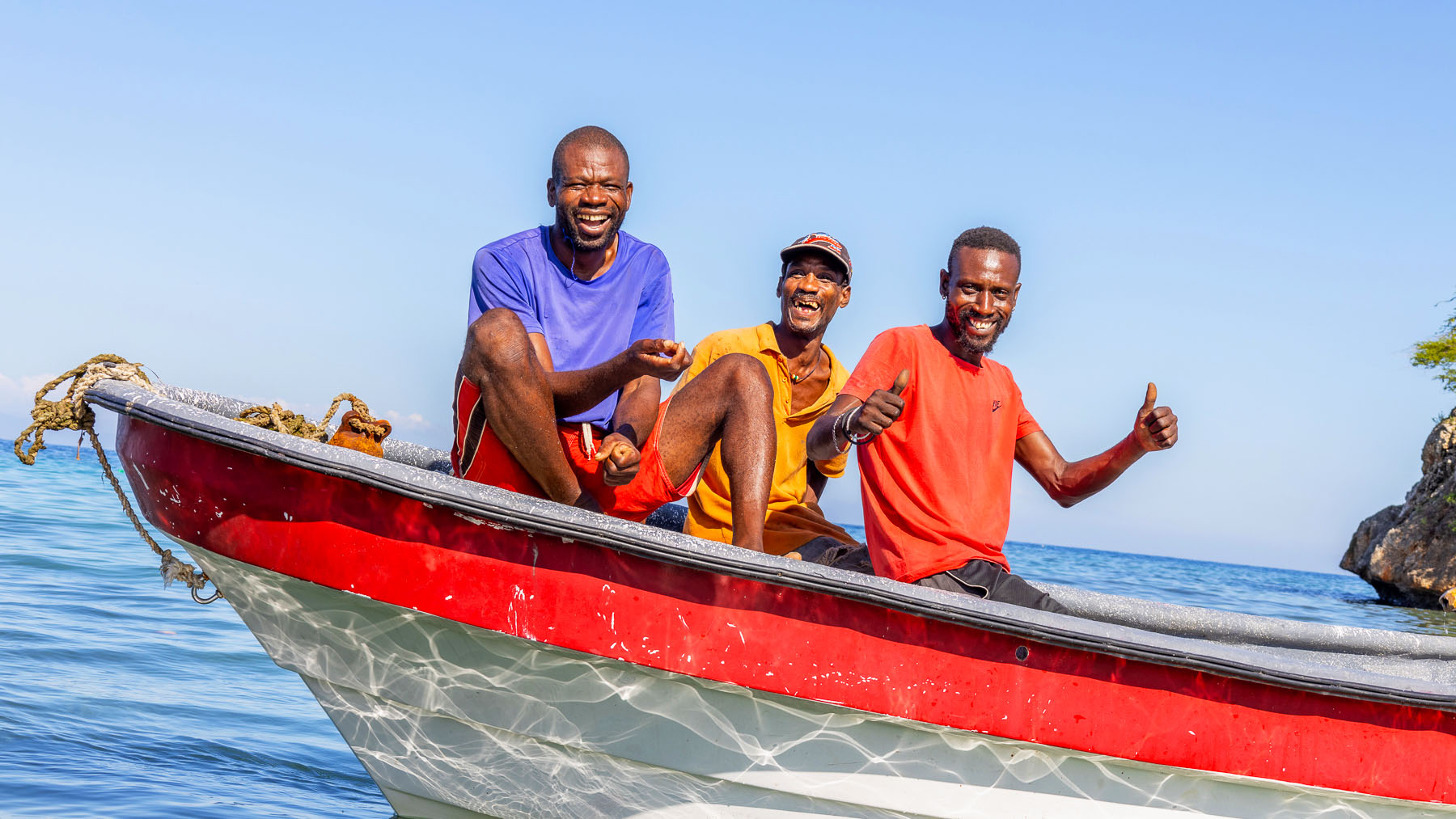
Fishers who have benefited from CORE’s EBA work in southern Haiti.
From ridge to reef, CORE remains committed to Haiti and will continue to work in the country to elevate entire communities through programs promoting sustainable soil conservation projects. Through this vital program, thousands of people who live in the region will be better safeguarded against environmental distribution and set up for long-term sustainable success.
If you would like to learn more about our programs in Haiti, please visit our Haiti program page. Please visit this page if you would like to donate to support CORE’s initiatives worldwide and in the United States.
HIGHLIGHTS
GET TO KNOW US
GET INVOLVED
MEDIA

REGIONS
California, Georgia, Chicago, North Carolina, New Orleans, Puerto Rico, Kentucky, Navajo Nation, Washington, D.C., Hawaii
INTERNATIONAL
CORE is a charitable 501(c)(3) nonprofit organization. Federal tax ID: 27-1703237.
© 2024 | CORE – Community Organized Relief Effort | +1 (323) 934 4400
910 N Hill St Los Angeles, CA 90012